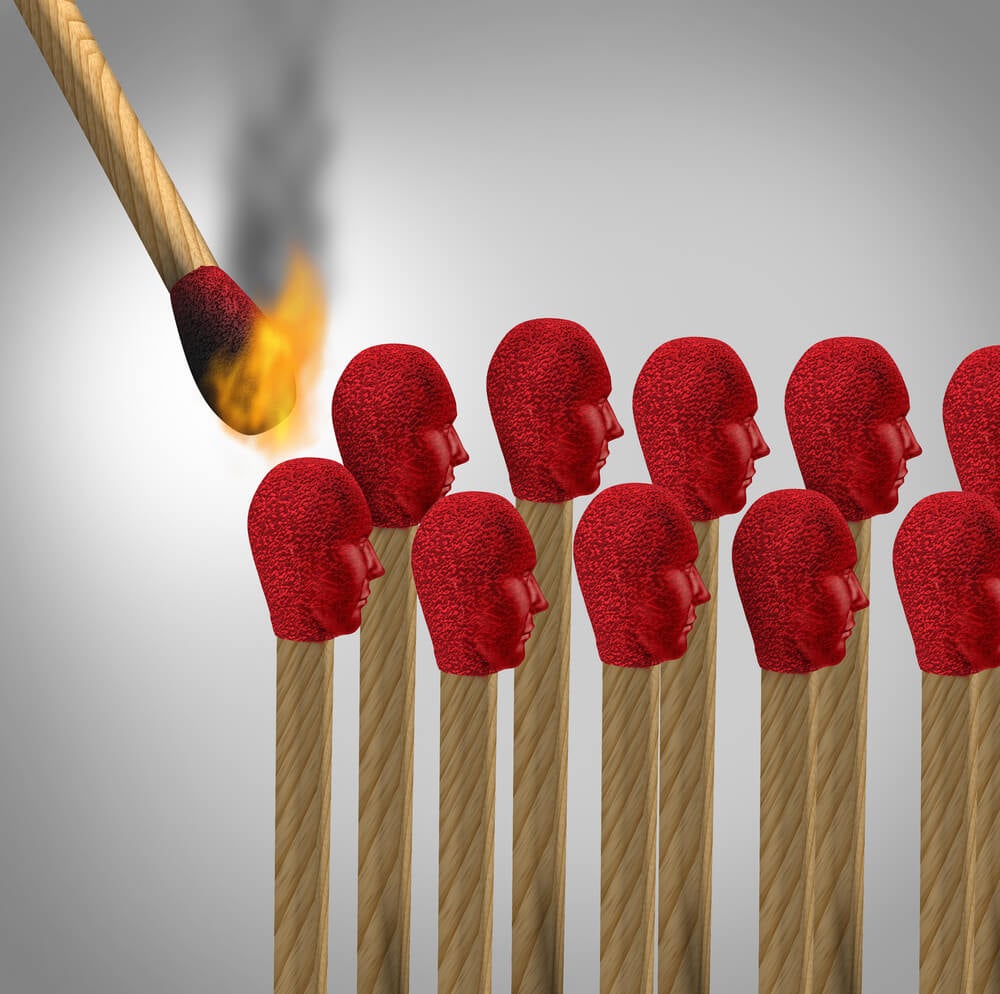We’re not mussels. You don’t have to be like everyone else, mingle with the crowd as a piece of sugar dissolves into a cup of coffee. Our individuality makes us unique and precious. Today, however, we tend to be witnesses or even victims of a very marked normopathy, that is, an almost obsessive need to be like others, which often makes us objects within a clearly material society.
You could say that this phenomenon is not new. And this is clearly not the case. However, writers and psychoanalysts, including Christopher Bollas, say the impact of technology is changing the way we think and even our personality. What we see on the screen of our cell phone or computer, for example, has a huge and overwhelming impact on who we are.
- In his latest book.
- Bollas.
- A reference in modern psychoanalytic theory.
- Seeks to warn us about a very specific aspect: many normopaths live around us.
- They are people who have not deepened their own identity at all.
- Who have not worked at all self-knowledge and who live with one goal: to achieve social validation.
This goal is also to abandon individuality and try to register, by force, in what others consider normal, that is, you try to almost obsessively imitate what others do, say or think within their groups and social networks, WhatsApp or a circle of friends or a specific community, often closed, if they do get some balance and psychological tranquility.
Getting out of the norm, not being able to fit into this invented and impossible mold, inevitably brings to those suffering from normopathy a great suffering. In addition, in every normpath there is also a perpetual feeling of melancholy, of existential emptiness. It is the obvious mark of a mind that has not dared to cut the umbilical cord, which has not individually developed its precious personality.
“Normopathy is the abnormal impulse of so-called normality. -Christophe Bollas-
There’s something very curious about it. We like to be told that we are unique and special, however most of the time we try to be like others, to adapt to the normative, to the expected, otherwise if we choose to have a voice of our own, to act according to our desires and our motivations, it is not long before they point the finger at us.
Albert Ellis, the famous cognitive psychotherapist, said that the key to happiness is learning to be ourselves in a world that is often unfair. In one way or another, whether we like it or not, we are forced to deal with critical voices, with great difficulties. and small and, of course, with injustices.
Those with normopathy, on the other hand, face nothing, assume and get carried away, he imitates, obeys and only confirms. Because normopathy is terribly passive and comes to rationalize and conclude that acts and dimensions are valid, which in many cases is completely illogical. Christopher Bollas, for example, talks about a young man who tried to kill himself simply because he wasn’t as good at football as his friends.
Below, we’ll look at more data describing normopathy
The term normopathy was coined by psychoanalyst Joyce McDougall, one of the most important and important references in the field of child schizophrenia, who in her book Plea for a Measure of Anormality, introduced this word to fundamentally define the fear of individuality.
Normopathy is a disease that is cured by the exercise of individuality, the normopath is an individual who denies his inner life to devote himself exclusively to the exercise of the superficial, the empty, the most foolish imitation to become object. will come suffering, eternal dissatisfaction.
This is where this type of profile will be forced to ask for help, to start this inner journey in which it is necessary to work self-esteem, identity, values and personality, then comes the time when the umbilical cord is finally cut. , so that the person can undertake the flight as a free being, with his own direction, his own cadence, his own course and its peculiarities.
The normopath can be cured, and will heal when he is fully aware that there is nothing as abnormal as being obsessed with normalcy.

